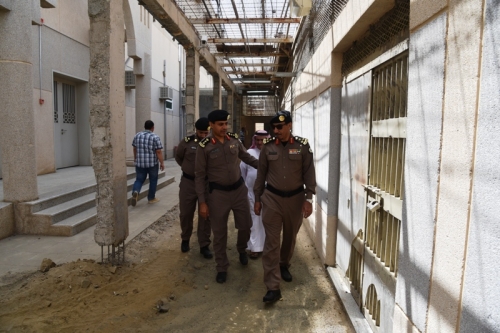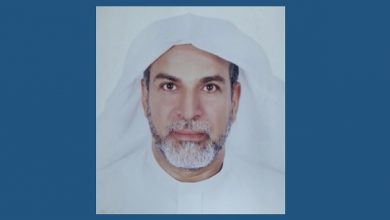A leaked document confirms violations inside Saudi prisons against prisoners of conscience

Sanad human rights organization published a leaked document confirming violations inside Saudi prisons against prisoners of conscience, including torture and ill-treatment.
The organization said in a statement that the document confirms documented violations practised by the Saudi regime inside prisons against prisoners of conscience, including taking a forced confession.
It explained that the violations also include threatening the detainee of conscience not to retract his statements, spending a long period in prison without knowing the charge, and solitary confinement.
According to the organization, the judges who heard these arguments in the Specialized Criminal Court from the above document are Abdulaziz Madawi Al Jaber, Abdulaziz Safar Al Harthy, Badr Abdullah Al Rayes, and Nayef Fahd Al Jarallah.
But they ignored it and issued unfair sentences against a number of detainees. Sanad Organization has documented this and is taking legal action against these violations against prisoners of conscience.
The European Saudi Organization for Human Rights also said that the grave violations against prisoners of conscience in Saudi prisons expose the reality of human rights in the Kingdom and the lies of attempts to falsify it.
In a statement, the organization indicated that on April 17, 2022, the information that reached human rights organizations confirmed the announcement of the activist and human rights defender Issa Al-Nukhaifi on hunger strike from Al-Ha’ir prison in Riyadh.
According to the information, Al-Nukhaifi’s hunger strike came against the backdrop of his refusal to end government transactions, the failure to end them led to restrictions on his family and children.
For years, detained activists in Saudi Arabia have been on hunger strike, after all means were exhausted, to pressure the government to stop the violations it is practicing against them.
Although information from prisons is scarce due to the intimidation practiced against defenders, and in the absence of any role for civil society organizations and bodies, a number of times detainees announced a hunger strike was monitored.
On August 15, 2021, human rights defender Muhammad Al-Qahtani announced a hunger strike after not responding to his demands, especially his transfer from the wing where prisoners are suffering from mental illnesses, to another wing.
In March 2021, more than 30 prisoners of conscience, including human rights activists Muhammad al-Qahtani, Fawzan al-Harbi, Issa al-Nukhaifi, Fahd al-Araini and writer Muhammad al-Hudayf, announced a hunger strike to protest the harassment in al-Ha’ir prison in Riyadh.
Human rights activist Abdul-Aziz al-Sunaidi, who is being held in Unayzah Prison in Qassim, also joined the strike. On March 11, 2021, Issa Al-Nukhaifi was transferred to the hospital after a low blood sugar level as a result of the hunger strike.
The announcement of the strike came due to harassment and ill-treatment by prison officials, and their denial of contact with their families and access to books and newspapers.
In addition to holding them in the wing where there are prisoners suffering from mental illnesses, some of them deal violently towards them.
In January 2021, activist Muhammad Al-Otaibi announced a hunger strike in his prison in Saudi Arabia. Al-Otaibi demanded that he be transferred from the General Intelligence prison in Dammam to a prison close to his family’s residence in Jeddah.
He also demanded proper medical care because he suffers from high blood pressure and was not given proper medication by the prison administration.
In October 2020, the family of the detained Saudi activist, Loujain Al-Hathloul, confirmed that her daughter had announced the start of a hunger strike because she was denied the right to contact her.
In December 2019, three activists, including activist Khaled al-Omair, lawyer Walid Abu al-Khair and Raif Badawi, announced a hunger strike to protest their poor prison conditions.
The information said that Khaled Al-Omair began a hunger strike in protest of his arbitrary detention exceeding the legal period, while Walid Abu Al-Khair went on strike to protest his continued detention in solitary confinement under heavy guard.
In February 2019, human rights defender Abdullah Al-Hamid announced a hunger strike against the backdrop of the campaign of arrests that targeted activists, male and female defenders, and to demand the release of all prisoners of conscience. Al-Hamid joined a number of detainees.
On April 10, 2012, the Association for Civil and Political Rights (ACPRA) confirmed in a statement that the health condition of prominent human rights activist Muhammad bin Saleh al-Bajadi is deteriorating after he went on a hunger and drink strike weeks ago. Al-Bajadi had declared a hunger strike to demand his right to his immediate release, or to enable him to have a public and fair trial attended by his legal agents.
The European Saudi Organization for Human Rights confirmed that the Saudi government’s intransigence in dealing with prisoners of conscience prompted them repeatedly to declare a hunger strike, a step that comes after the exhaustion of means to demand basic rights.
The organization highlighted the arbitrary arrests of male and female activists in Saudi Arabia. The violations that they follow that prompt them to repeatedly declare a hunger strike, disregarding all international laws and commitments.
The organization considered that the Saudi government’s arbitrary treatment of prisoners of conscience and human rights defenders reflects the reality of human rights that the government is trying to falsify in international forums, based on the absence of the voices and roles of these detainees.





